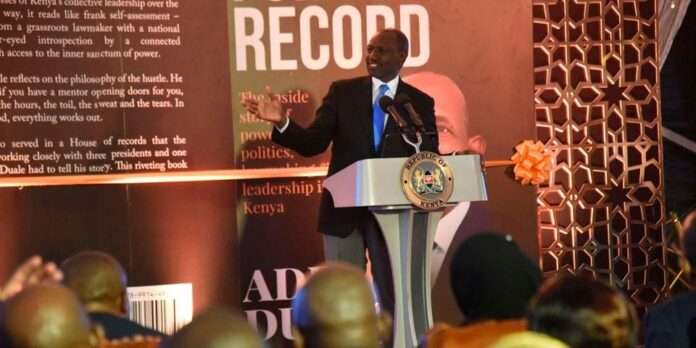The Treasury is set to tighten the noose on hustlers who have previously not been paying tax through new measures targeting Kenyans in the informal and agriculture sectors.
The Treasury in the Budget Policy Statement for 2023 indicated that there is a potential to net Sh2.8 trillion in revenue from the unexplored Micro, Small, and Medium Enterprises (MSMEs) sector tax base.
“The potential taxable base of the informal sector is Sh2,800 billion as per the MSME survey,” said Treasury in the 2023 Draft Budget Policy Statement (BPS).
A newly published National Tax Policy (NTP)—which is to guide Kenya’s taxation framework for at least three years—targets a unified collection of taxes, levies, and fees and sharing of information between the national and county governments, which would see more people who haven’t been paying taxes netted, and existing collection loopholes filled.
In the policy guidelines on hard-to-tax sectors, Treasury proposed to go hard on agriculture and informal sectors to increase tax yields.
“To achieve this objective, the government will explore ways of enhancing taxation of informal sectors including through increasing presence in big towns and cities and explore the mechanism for collecting taxes from the informal sector such as the appointment of tax collection agents,” the Policy states.
It also proposes rolling out of education programmes to farmers and informal sector groups on taxation and to “require farmers and informal sector players to register with respective sub-sector associations and co-operative societies.”
This is besides a strong drive to ensure that counties and the national governments share information that will help bring more potential taxpayers on board, as the government strives to grow collections.
Tax, levies, and fees collection could also be done at a central point soon as opposed to the current scenario where county and national governments run a different set of collection channels.
This plan would bring changes in many areas where counties are currently collecting taxes, fees, and levies, including parking fees, and business licenses such as single business permits and cess.
It would also bring changes in the counties’ Own Source Revenue (OSR) where most of the devolved units have been underperforming and have poor capacities in their own revenue collection despite having rich resources.
The Commission on Revenue Allocation (CRA) last year released a report indicating that while Kenya’s 47 county governments had the potential to collect Sh216 billion annually, they were collecting a mere Sh31 billion, an underperformance of over 80 per cent.
“Many counties that have huge debts have the potential to meet the requirement of spending at least 30 per cent of revenues on development,” said CRA Chairperson Jane Kiringai.
The local business community has been calling on the government to establish a specialised court to handle tax disputes, a move that now appears to be close to reality.
The Policy comes following KRA’s failure to collect enough taxes, with 2021/2022 being the first year the government body surpassed its targets to collect over Sh2 trillion.
In the current financial year, the authority had collected Sh1.57 trillion in taxes by April 28, out of the targeted Sh2.1 trillion by the end of June.





